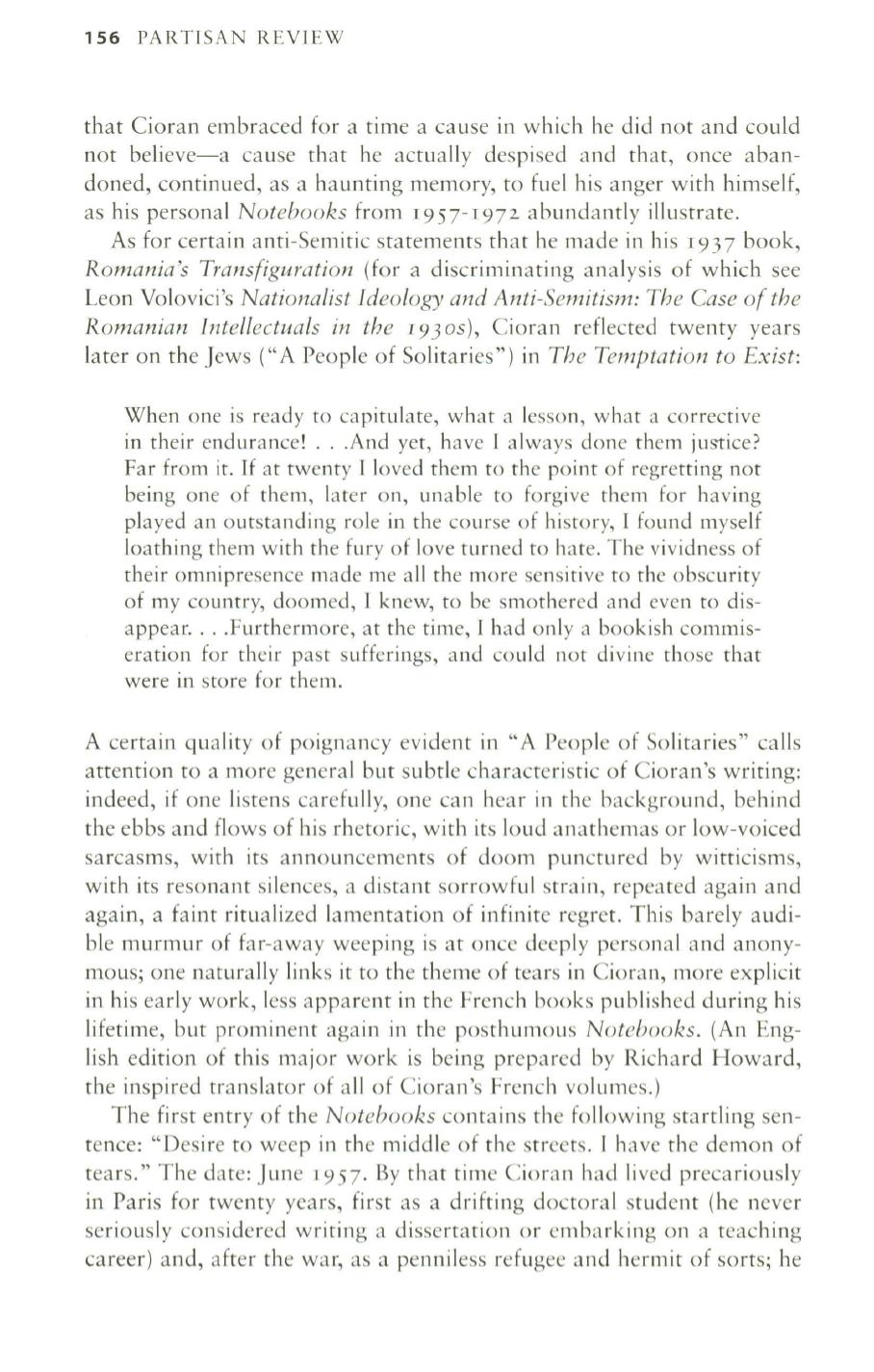
156
PARTISAN REVIEW
that Cioran embraced for a time a cause in which he did not and could
not believe-a cause that he actually despised and that, once aban–
doned, continued, as a haunting memory, to fuel his anger with himself,
as his personal
Notebooks
from
1957-1972
abundantly illustrate.
As for certain anti-Semitic statements that he made in his
1937
book,
Romania's Transfiguration
(for a discriminating analysis of which see
Leon Volovici's
Nationalist Ideology and Anti-Semitism: The Case of the
Romanian Intellectuals in the
r 93
as),
Cioran reflected twenty years
later on the Jews ("A People of Solitaries") in
The Temptation to Exist:
When one is ready to capitulate, what a lesson, what a corrective
in their endurance! ...And yet, have I always done them justice?
Far from it.
If
at twenty I loved them to the point of regretting not
being one of them, later on, unable to forgive them for having
played an outstanding role in the course of history, [ found myself
loathing them with the fury of love turned to hate. The vividness of
their omnipresence made me all the more sensitive to the obscurity
of my country, doomed, I knew, to be smothered and even to dis–
appear....Furthermore, at the time, I had only a bookish commis–
eration for their past sufferings, and could not divine those that
were in store for them.
A certain quality of poignancy evident in "A People of Solitaries" calls
attention to a more general but subtle characteristic of Cioran's writing:
indeed, if one listens carefully, one can hear in the background, behind
the ebbs and flows of his rhetoric, with its loud anathemas or low-voiced
sarcasms, with its announcements of doom punctured by witticisms,
with its resonant silences, a distant sorrowful strain, repeated again and
again, a faint ritualized lamentation of infinite regret. This barely audi–
ble murmur of far-away weeping is at once deeply personal and anony–
mous; one naturally links it to the theme of tears in Cioran, more explicit
in his early work, less apparent in the French books published during his
lifetime, but prominent again in the posthumous
Notebooks.
(An Eng–
lish edition of this major work is being prepared by Richard Howard,
the inspired translator of all of Cioran's French volumes.)
The first entry of the
Notebooks
contains the following startling sen–
tence: "Desire to weep in the middle of the streets. I have the demon of
tears." The date: June
L957.
By that time Cioran had lived precariously
in Paris for twenty years, first as a drifting doctoral student (he never
seriously considered writing a dissertation or embarking on a teaching
career) and, after the war, as a penniless refugee and hermit of sorts; he


